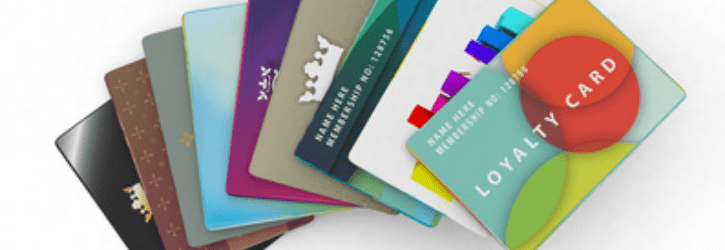
Welcome To The Data Leak Lawyers Blog
We focus on the latest news surrounding data breaches, leaks and hacks plus daily internet security articles.

We focus on the latest news surrounding data breaches, leaks and hacks plus daily internet security articles.

We have already been contacted by people affected by the Trusted Quid data protection breach, and our Data Leak Lawyers have agreed to investigate cases.
As many as 66,000 customers of payday loan firm Trusted Cash, trading as Trusted Quid, may have had their data stolen due to an unauthorised access of their website. Customers affected by the breach are now at a greater risk of becoming a victim of fraud as key information was stolen in the breach.
Because of the nature of the data compromised in the cyberattack, this is a very serious data protection breach indeed.

Back in 2016, the cybersecurity of Tesco Bank was rigorously questioned, when hackers were able to gain access to 9,000 customers’ accounts and steal £2,500,000.
Tesco also suffered a further breach last week were they reportedly cancelled a number of credit cards over a ‘third-party compromise’.
There has now been another breach where it’s estimated 17,000 Tesco Travel Money customers are subject to this new and massive data protection breach which happened through Travelex – a company that runs services on behalf of Tesco.
Names and payment information are amongst the data that has reportedly been compromised
read more

A recent study concluded that, in January, almost 40% of data protection breaches in a particular healthcare sector were caused by hacking.
Although the figures are from one study, and the results are relevant for the area of the study, the risk of NHS Trusts, doctors and hospitals falling victim to a hack is a serious and ongoing concern.
The 2017 “WannaCry” cyber-hack that specifically targeted older and more outdated systems hit the NHS hard. In fact, the UK faced a practical crisis in the immediate fallout of the hack.
read more

Actor Hugh Grant is said to have received a six-figure settlement sum as a victim of the infamous phone-hacking scandal involving Trinity Mirror Group.
Mr Grant reportedly condemned members of the Mirror outlets involved, including Piers Morgan, who was in charge at the time when the hacking took place but denies knowledge or involvement in the shameful and illegal behaviour.
This remains one of the most infamous cases of the misuse of private information that was attained by hacking into victims’ phones and voice-mails.
read more

Technology website Lowyat.net reportedly discovered a huge Malaysian data breach that saw millions of people have their personal data stolen and leaked on the dark web.
The information was apparently taken from multiple Malaysian mobile phone operators, as well as the Malaysian public sector and commercial company websites.
With over 46 million confirmed records breached, this is one monumental data incident.
read more

Swedish prosecutors initiated a huge trial after a number of private and public organisations were hacked. Eight people are reportedly standing on trial for the criminal charges that saw at least 40 million Swedish kronor (£3.6 million) stolen or mishandled.
If convicted, the alleged perpetrators could face eight years in jail for their criminal conduct. The exact number of victims has not been confirmed.
The criminal hacker group reportedly hijacked computers and set up social engineering attacks to steal money from a number of organisations and individuals. The Swedish Prison and Probation Service was hit by a breach, along with 20 companies, four banks, a number of law firms, and private individuals also.
read more

Supermarket chain Whole Foods Market Inc has admitted that the company suffered a major data breach through its payment card systems.
In an announcement, they revealed the breach happened through their ‘taprooms’ and full table-service restaurants inside some 40% of their stores, rather than through its checkout services.
This is significant as the company uses a separate payment system for its bars and restaurant to its grocery checkout stations, with most of their customers using the latter. Any breach involving card and banking information is, of course, incredibly serious.
read more

In recent years, we’ve seen advancements in technology hurtle forward at an incredible pace, and children’s electronic toys can sometimes be at the forefront of such developments. Many kids don’t want plain teddy bears and dolls any more; they want intelligent robots that can interact with them.
Consumer watchdog, Which?, joined up with a similar German organisation, Stiftung Warentat, and together they made the chilling discovery that a lot of popular kids electronic toys can apparently be hacked. Enlisting the help of third-party security experts, they tested seven different toys and four of them were vulnerable to hacking.
read more

It’s no secret that many carmakers are racing ahead with self-driving car technology. Since Tesla brought the futuristic dream into reality, many other companies have quickly followed suit.
Here in the U.K., we have seen government approval for the creation and testing of these autonomous cars on our motorways in a bid to be at the forefront of this new and innovative technology. However, there is still one major hurdle – aside from robot cars crashing due to mistakes that cannot be rectified by anything other than human reaction – and that’s hacking fears.
read more

The new iPhone X has caused quite a stir. The reportedly brighter and more intelligent 5.8 inch display phone has featured heavily on TV adverts and magazines. For an eye-watering £999, the smartphone boasts better specs and a new key feature and selling point which is its facial recognition technology.
In a world where high profile data breaches are constantly threatening our privacy, Apple asserts that facial recognition technology cannot be deceived by 2D pictures, lookalikes and family. Needless to say, many have taken on the challenge to test just how accurate the technology is.
Apparently, it has already been cracked…
read more
EasyJet admits data of nine million hacked
British Airways data breach: How to claim up to £6,000 compensation
Are you owed £5,000 for the Virgin Media data breach?
Virgin Media faces £4.5 BILLION in compensation payouts
BA customers given final deadline to claim compensation for data breach
Shoppers slam Morrisons after loyalty points stolen
Half a million customers can sue BA over huge data breach
Lawyers accuse BA of 'swerving responsibility' for data breach
The biggest data breaches of 2020
Fill out our quick call back form below and we'll contact you when you're ready to talk to us.